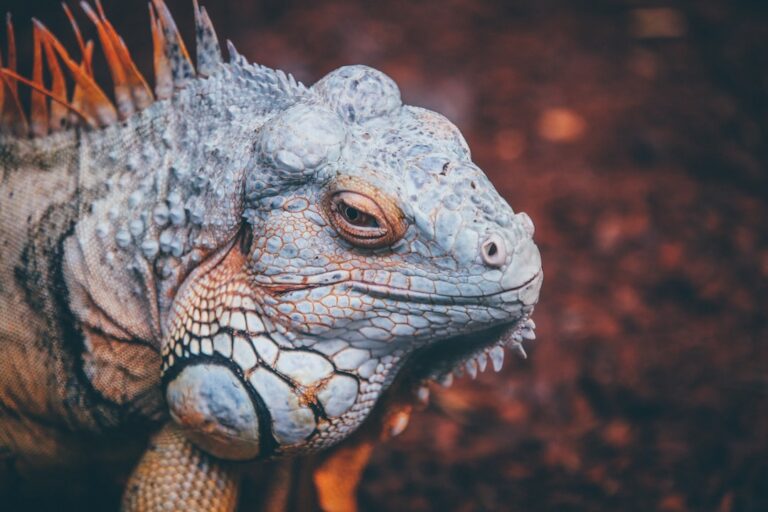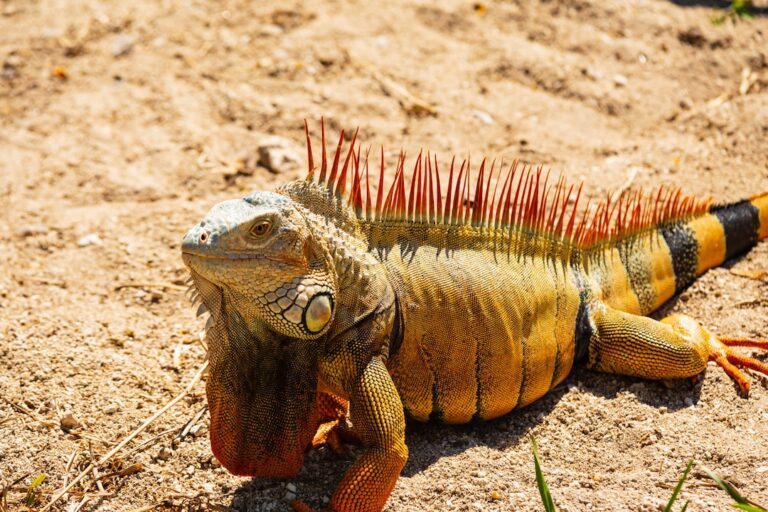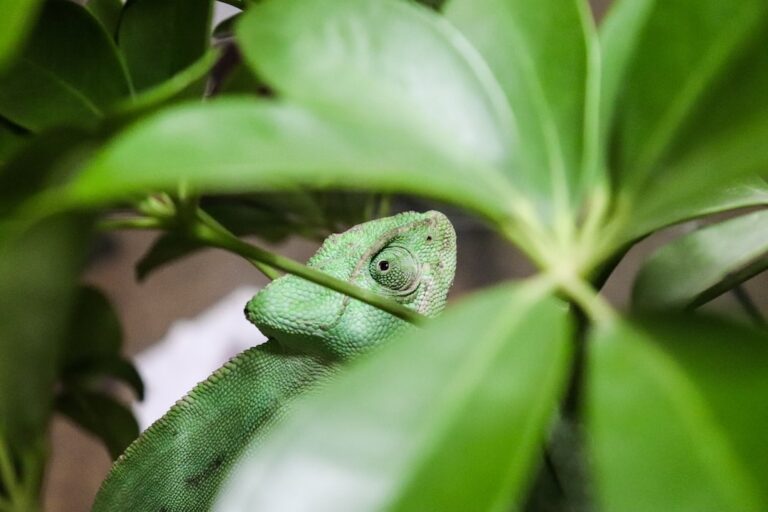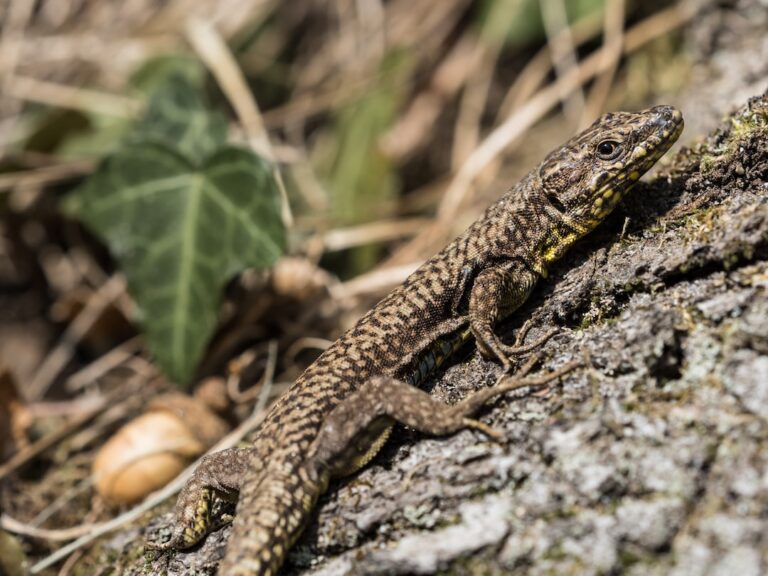Can Iguanas Smell Food?
Iguanas are fascinating reptiles that are native to tropical regions of Central and South America. They are known for their distinctive appearance, with their long tails, spiky crests, and vibrant colors. Iguanas are also known for their impressive sensory abilities, which play a crucial role in their survival in the wild.
Table of Contents
Understanding the Sense of Smell in Iguanas
The sense of smell is an important sensory ability for iguanas. They use their sense of smell to navigate their environment, locate food, and communicate with other iguanas. Iguanas have a highly developed olfactory system, with specialized receptors in their nasal cavity that allow them to detect and interpret different scents.
In comparison to humans, iguanas have a much more acute sense of smell. While humans have approximately 5 million olfactory receptors, iguanas have around 50 million. This heightened sense of smell allows them to detect even the faintest scents in their environment.
Factors that Affect an Iguana’s Sense of Smell
There are several factors that can impact an iguana’s sense of smell. Environmental factors such as temperature and humidity can affect the sensitivity of their olfactory receptors. For example, if the air is too dry, it can impair an iguana’s ability to detect scents.
Health issues can also affect an iguana’s sense of smell. Respiratory infections or blockages can interfere with their ability to breathe properly and therefore impact their sense of smell. It is important to monitor an iguana’s health and seek veterinary care if any issues arise.
How Iguanas Use Their Sense of Smell in the Wild
In the wild, iguanas rely on their sense of smell for various purposes. One important way they use their sense of smell is to locate food. Iguanas are herbivores and primarily eat leaves, flowers, and fruits. Their sense of smell helps them find the most nutritious and suitable food sources in their environment.
Iguanas also use their sense of smell to communicate with other iguanas. They can detect pheromones released by other iguanas, which convey important information about their reproductive status, territory, and social hierarchy. This helps them establish and maintain social bonds within their community.
Can Iguanas Detect Different Types of Food by Smell?
Yes, iguanas can detect different types of food by smell. Their highly developed sense of smell allows them to distinguish between different scents and identify the specific type of food they are seeking. This is particularly important for iguanas in the wild, as it helps them find a varied diet that meets their nutritional needs.
It is important for iguana owners to offer a diverse range of foods to their pets to ensure they receive a balanced diet. By providing a variety of scents and flavors, owners can stimulate their iguana’s sense of smell and encourage them to explore different types of food.
How to Stimulate an Iguana’s Sense of Smell
There are several ways to stimulate an iguana’s sense of smell and provide opportunities for them to use this sensory ability. One way is to offer a variety of scented objects in their enclosure. This can include fresh herbs, flowers, or even pieces of fruit that emit strong scents.
Enrichment activities can also help stimulate an iguana’s sense of smell. For example, hiding food items around their enclosure and encouraging them to search for it can engage their sense of smell and provide mental stimulation.
The Importance of Proper Nutrition for Iguanas
Proper nutrition is crucial for the overall health and well-being of iguanas. A balanced diet that includes a variety of fruits, vegetables, and leafy greens is essential to meet their nutritional needs. Without a proper diet, iguanas can suffer from deficiencies and health issues.
The sense of smell plays a significant role in an iguana’s ability to find and consume the appropriate food sources. By offering a diverse range of scents and flavors, owners can ensure that their iguana is motivated to eat and receives the necessary nutrients for optimal health.
Common Foods Iguanas Can Smell and Enjoy
Iguanas have specific dietary requirements and there are certain foods that they can detect by smell and enjoy eating. Some common foods that iguanas can smell and enjoy include dark leafy greens such as kale, collard greens, and dandelion greens. They also enjoy fruits such as strawberries, mangoes, and papayas.
It is important to offer a variety of foods to ensure that an iguana receives a balanced diet. This not only provides them with the necessary nutrients but also keeps them engaged and interested in their food.
How to Train an Iguana to Respond to Smell
Training an iguana to respond to certain smells can be a fun and rewarding experience for both the owner and the pet. One way to do this is through positive reinforcement training. By associating a specific smell with a reward, such as a favorite treat, you can train your iguana to respond to that smell.
For example, you can introduce a particular scent when it’s time for feeding and reward your iguana with their favorite food when they respond to that smell. Over time, they will learn to associate the scent with food and respond accordingly.
Caring for Your Iguana’s Sense of Smell
In conclusion, an iguana’s sense of smell is a vital sensory ability that plays a crucial role in their survival and well-being. By understanding how iguanas use their sense of smell and providing opportunities for them to engage this sense, owners can ensure that their pets are happy and healthy.
Proper nutrition is also essential for an iguana’s overall health, and their sense of smell is closely tied to their ability to find and consume the appropriate food sources. By offering a diverse range of scents and flavors, owners can stimulate their iguana’s sense of smell and provide them with a varied diet that meets their nutritional needs.
Caring for an iguana’s sensory needs, including their sense of smell, is an important aspect of responsible pet ownership. By providing a stimulating environment and a balanced diet, owners can help ensure that their iguana thrives in captivity.
If you’re curious about the olfactory abilities of iguanas, you might also be interested in learning about why turtles pee on you. It’s a fascinating behavior that many turtle owners have observed, and it has some interesting explanations. To find out more, check out this article on Reptile Friend.







